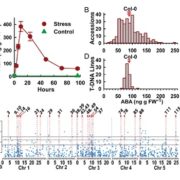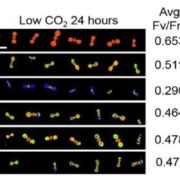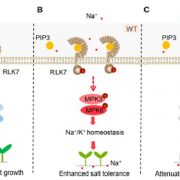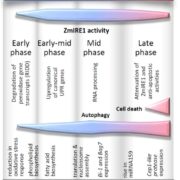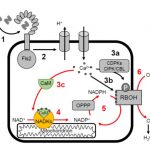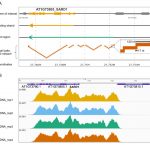NEEDLE1 encodes a mitochondria localized ATP-dependent metalloprotease required for thermotolerant maize growth ($) (PNAS)
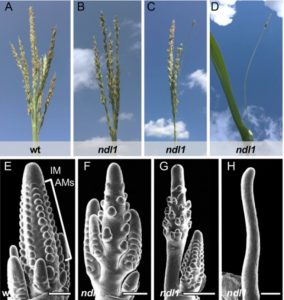 Previously, the needle1 (ndl1) maize mutant was identified as showing a variable phenotype mainly affecting the tassel. Here, Liu et al. showed that this variability arises due to its temperature sensitivity, with strongest effects at warmer temperatures. In some cases, the plants arrest before reaching maturity, and in others the tassel forms a bare, unbranched infertile structure; the authors also identified root defects at elevated temperatures. The tassel phenotype resembles that of auxin mutants, and they showed that ndl1 mutants have altered auxin responses. The authors identified a single nucleotide change in a nuclear gene encoding a mitochondrial-localized ATP-dependent metalloprotease belonging to the FILAMENTATION TEMPERATURESENSITIVE H (FTSH) family. The mutant allele itself is not a temperature sensitive allele; rather, loss-of-function of this gene causes thermal sensitivity. The mutants show high levels of ROS accumulation, leading to altered auxin responses through an unknown mechanism. The authors propose “that NDL1 is required for maintaining the redox status of meristems to sustain maize growth at high temperatures.” (Summary by Mary Williams) Proc. Natl. Acad. Sci. USA 10.1073/pnas.1907071116
Previously, the needle1 (ndl1) maize mutant was identified as showing a variable phenotype mainly affecting the tassel. Here, Liu et al. showed that this variability arises due to its temperature sensitivity, with strongest effects at warmer temperatures. In some cases, the plants arrest before reaching maturity, and in others the tassel forms a bare, unbranched infertile structure; the authors also identified root defects at elevated temperatures. The tassel phenotype resembles that of auxin mutants, and they showed that ndl1 mutants have altered auxin responses. The authors identified a single nucleotide change in a nuclear gene encoding a mitochondrial-localized ATP-dependent metalloprotease belonging to the FILAMENTATION TEMPERATURESENSITIVE H (FTSH) family. The mutant allele itself is not a temperature sensitive allele; rather, loss-of-function of this gene causes thermal sensitivity. The mutants show high levels of ROS accumulation, leading to altered auxin responses through an unknown mechanism. The authors propose “that NDL1 is required for maintaining the redox status of meristems to sustain maize growth at high temperatures.” (Summary by Mary Williams) Proc. Natl. Acad. Sci. USA 10.1073/pnas.1907071116


